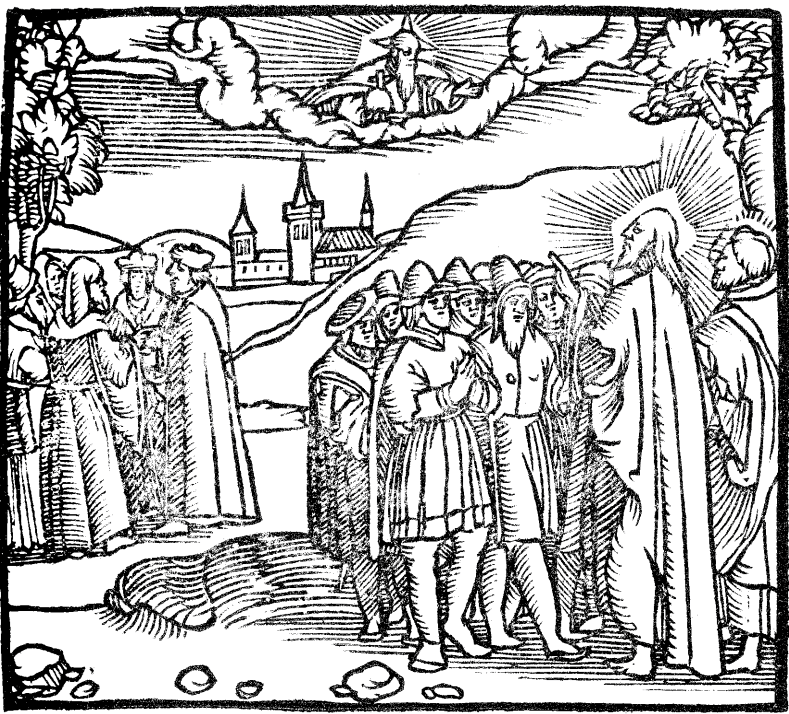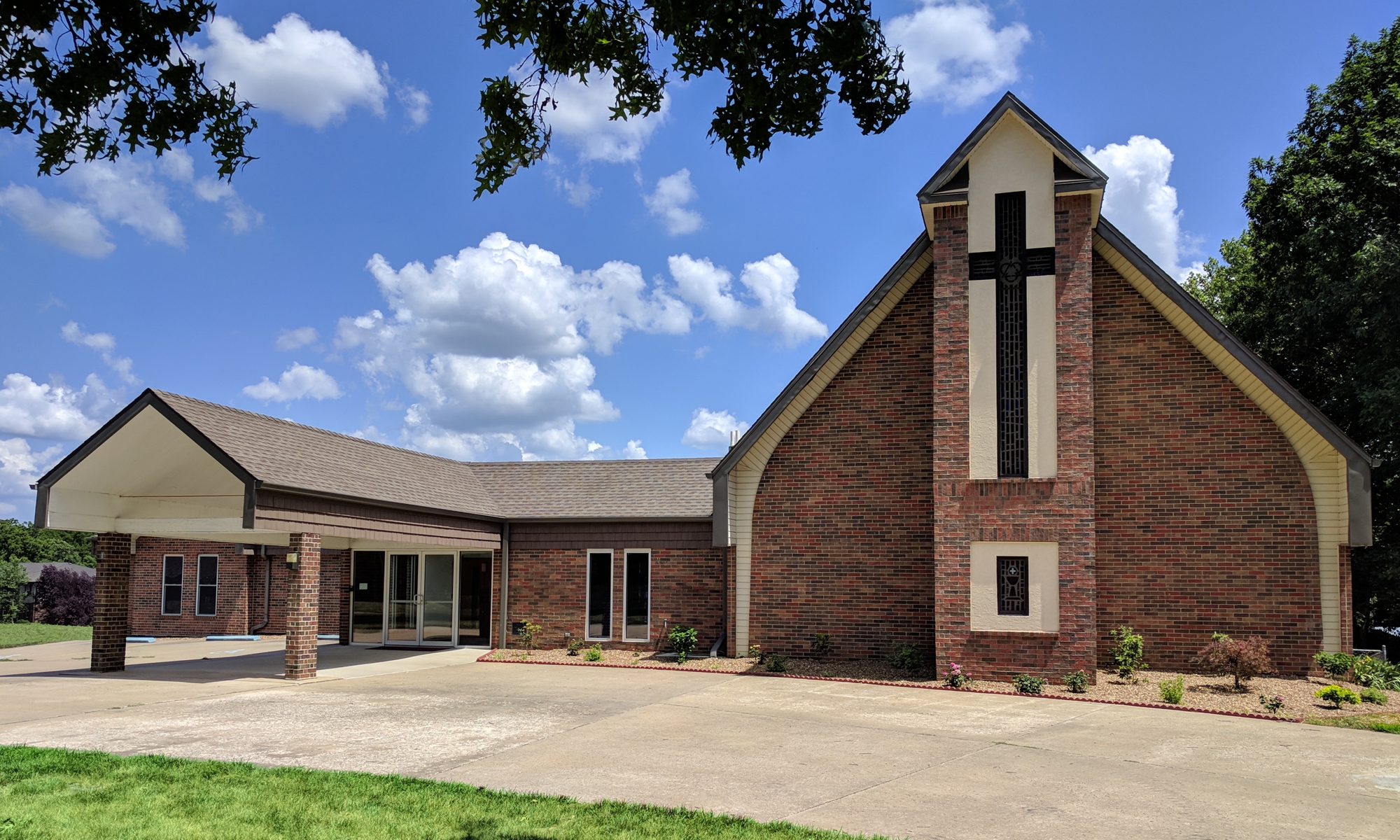
Lessons: Deuteronomy 10:12-21, 1 Corinthians 1:4-9, Matthew 22:34-46
Hymns: LSB 579, 708, 696, 865, 580
Grace, mercy, and peace to you from God our Father and our Lord and Savior, Jesus Christ. Amen.
Our Epistle lesson today is drawn from St. Paul’s letter to the Corinthians. This was a young Christian congregation settled in the seaport city of Corinth. Much immorality could be found in the city, as is typical for seaports. That immorality was making its way into the church, along with a number of doctrinal divisions and bad practices. The reports St. Paul heard resulted in the writing of 1 Corinthians.
Instead of diving right in to all the problems plaguing the Corinthian Church, the Apostle Paul addresses the congregation with thanksgiving, directing their hearts and minds toward their Savior, Jesus. In fact, our Lord Jesus Christ is named 10 times in the first 10 verses of 1 Corinthians, more than anywhere else in all of Scripture. Paul is reminding them of the Chief Cornerstone of the Church, their Savior, and their Lord.
This foundation is important because without Christ, there is no Christianity, no salvation, no hope of eternal bliss, no answers to our prayers, no forgiveness, no access to God our Father. Simply put, without Christ crucified and risen, the Christian faith would be in vain and we would remain in our sins, as Paul would later teach in 1 Corinthians.
Despite the clarity of Scripture, the Pope has said that unbelievers can be saved if they live a just life. He wrongly asserts that salvation could come apart from Christ. This should be no surprise that such things have been spoken not only by Pope Francis, but also by Pope John Paul II. Why should we not be surprised that they would suggest salvation apart from Christ, especially since the denomination has been traditionally morally conservative? Because their denial of salvation through faith in Christ alone has been written into their theological system since the Middle Ages. For centuries, the Roman Catholic Church has taught that good works must also be added to the work of Christ in order to obtain salvation. And when the work of Christ is deemed insufficient and mankind has something to add, then the logical conclusion is that Christ is no longer the sole Savior. Then it is up to man to save himself through his works (or from other saints).
This matches the prevailing winds of our society. Most Americans do not believe that faith in Jesus is a requirement to be saved, but being good will get you to heaven. This view is held by 40-some percent of most protestant denominations and 70% of Roman Catholics. Part of our culture involves the influence of lodges. While they usually do not have the stranglehold they once possessed, in some communities you had to belong to whatever lodge was in power to successfully run a business or get elected for office. None of the lodges confess Christ. All of them are religious and they all accept members from any form of religion. At Masonic funeral rites, they list the works of an individual and pray to the Great Architect of the Universe, that he would receive the mason into the Grand Lodge Above. The Elks pray to the Grand Exalter Ruler that the elk would be worthy of a place in the Eternal Lodge of the Hereafter. The Moose sound the most Christian, using much Biblical terminology and evening singing hymns like “Nearer, My God, to Thee” at their memorial and burial rites. But they carefully use hymns, prayers, and readings that do not mention Jesus and they suggest the Triune God is the same as the god of modern Jews, Muslims, and even heathens. To the undiscerning Christian, the latter will prove to be the most dangerous because the Moose Lodge’s rejection of Christ is the most subtle. All require oaths in God’s name that are contrary to His will.
In Christian love, our members have never been allowed to belong to lodges. There are many service organizations in our community outside of the lodges where Christians can participate without compromising their faith in Christ. And, of course, there is much opportunity for service within our own congregation.
When Paul wrote to the Corinthains, he took a stand on many issues that were unpopular as he combatted immorality, false belief, bad practices, and rivalry within the congregation. He did not step away from them, figuring that the situation was too difficult to handle. Instead, he addressed the issues, and it appears that the congregation largely listened and followed God’s Word.
The Apostle did not take credit for the improvements the congregation made. He recognized that he was simply God’s humble instrument. Instead, God the Holy Spirit was the One doing the work. For the Holy Spirit is the One who convicts, converts, humbles, drives sinners to repentance, and works faith in them.
The Holy Spirit works through the two major doctrines of the Bible—the Law and the Gospel. While many bristle at hearing the Law, it remains God’s Word. Its aim is for the salvation of mankind. It is written not only to teach us what God requires of us, but also to accuses and convicts us of sin.
In today’s Gospel, a question is presented to Jesus concerning the Law. Which is the greatest commandment? Jesus told them as it is. Love God with all your heart, soul, and mind. The second is similar: love your neighbor as yourself (Matt. 22:34-40).
But the Law does not bring about salvation for the sinner. It is good, as we sang in our opening hymn. It makes way for salvation by driving sinners to repentance. But the Law does not cleanse a sinner or offer hope to sinners. The Law accuses and condemns. The Law makes demands and informs us how to live. None of this saves us. For the Law does not absolve sinners.
The absolution, or forgiveness, is the Gospel’s task. As we will sing in our closing hymn, the Gospel points us to our Savior, Jesus. The Gospel offers salvation for free. There are no threats, accusations, demands, or instructions when it comes to the Gospel. Yet the Gospel motivates us to keep the Law. But above all, the Gospel points us to our Savior, Jesus who forgives us, reconciles us to our Father in Heaven, and counts us righteous solely by His grace.
You see, the Law confines us all under sin. It exposes our sin, reveals our inborn corruption, and shows how soiled we are in our sin. The Law never releases us from the crushing weight of our sin. What this means is we cannot purify ourselves, make ourselves right with God, or make amends with God through the Law. However hard one may make attempts to keep the Law, he is still stuck with his sin.
That’s why we all need Jesus. No one atoned for sin except Jesus who went to the cross and shed His innocent Blood on behalf of all mankind. Jesus alone was held guilty in our place so that we can be counted guiltless. Jesus alone is the Way, the Truth, and the Life. No one has access to God the Father except through faith in Jesus (John 14:6).
Popes, lodges, and various religious philosophers may opine that there are other ways to gain heaven, but the reality is that salvation is found under no other name than our Lord Jesus Christ (Acts 4:12).
What I am about to say is a hard saying, but hear me out. Heaven is reserved for those who are perfect, and God will not allow anyone who is not holy to come into His presence and live. Instead of us giving up in despair over our sin, we draw near to Jesus for He offers salvation for free. In fact, He became our sin so that we become His righteousness (2 Cor. 5:21). The Lord laid on Jesus our sin so that Christ’s holiness may be imputed to us (Isaiah 53:6). We are declared righteous through Christ. That means in Christ the Father sees us as perfect humans, acceptable to Heaven, and ready to stand in His presence—and live. The pronouncement we receive in Christ is that we are not guilty of our sin. In fact, as far as the east is from the west, that is how far God removes our sin from us (Psalm 103:12). All by grace through faith in Christ. So when we stand before God for judgment with Christ as our Advocate and Savior, as baptized and redeemed Christians, we will appear perfect before God with not even the smallest sin counted against us.
Can it get any better? Salvation for free! Earned by Someone else and credited to us!
Why, then, do people so quickly turn from this Gospel and replace it with systems of works? Why do so many yawn at the most precious and glorious gift we could possibly receive?
For some, they figure it is too good to be true. For others, they figure it is too exclusive—salvation by grace through faith in Christ? What about those who desire faith in themselves, faith in Mohammad, or faith in flying spaghetti monster? Why even require faith?
Because that is the way of salvation God established. Faith clings to Jesus who died for us and rose for us. Faith listens to the voice of God—both Law and Gospel. Faith rejoices in the salvation won by our Savior, Jesus.
Through faith in Christ, you “enriched in Him in all speech and all knowledge—even as the testimony about Christ was confirmed among you—so that you are not lacking in any gift, as you wait for the revealing of our Lord Jesus Christ, who will sustain you to the end, guiltless in the day of our Lord Jesus Christ. God is faithful, by whom you were called into the fellowship of his Son, Jesus Christ our Lord” (1 Cor. 1:5-9). Amen.
The peace of God which passes all understanding keep your hearts and minds in Christ Jesus to life everlasting. Amen

